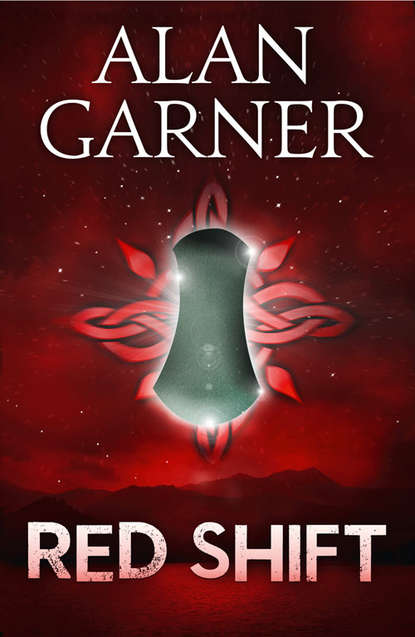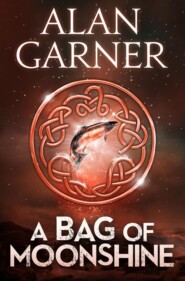По всем вопросам обращайтесь на: info@litportal.ru
(©) 2003-2025.
✖
Red Shift
Настройки чтения
Размер шрифта
Высота строк
Поля
“Playing Roman. It gets you, if you let it: then you ain’t nothing. Congratulations, sir.”
Logan had come out.
“Yeh.”
“Have a beer.”
“No. The games are over. Stand to till dawn.”
Logan picked Macey up. The sword hung on his palm. Face pulled it away.
“Here, kid,” said Logan. He pushed Macey through the door opening. “Go do yourself some good.”
“You know, sir?” said Magoo. “That chick was half stoned when I found her. That’s why she was missed the first time.”
“Search for others,” said Logan. “We can’t afford mistakes.”
“There won’t be any more,” said Face. “I know these Cats.”
Macey shivered in the hut. His clothes were drying on him and stiffening. His skin flaked, encrusted. He blinked in the dark hut. A girl, about fifteen years old, lay like a doll on the floor. The lamp was reflected in her eyes. There had been paint on her brow, but it was smudged to shapelessness. Macey slumped on his hands and knees. The stink of him was in his own nostrils. He touched the paint on her forehead. “Don’t,” he said, “be afraid,” and she reached out her hand, “of me.” The hand touched the hard weight slung by his shoulder, and her eyes moved to him. He fell beside her, his fingers reached gently for the lobe of her ear and held it. She smoothed his clogged hair.
Jan held Tom’s wrists. He let her. She turned on the crooked tap, shook his hands free of the glass and pushed them into the water. There were no deep cuts, and she directed the jet to sluice fragments away from the skin.
“Bloody Norah!”
Tom’s father had come into the kitchen.
“Let your hands dry, don’t rub them,” said Jan. Tom did so, his body quiet, his face red and swollen.
“Has he hurt himself?”
“He’s done no hurting,” said Jan.
She dabbed his hands with paper tissue. They seemed to be free of glass. His father went to the taps and the window.
“It wasn’t my idea,” he said.
“So much was obvious,” said Jan.
“He did this.”
“Yes.”
“That wasn’t the idea.”
“It was the result.”
“Bloody Norah.”
“Bloody Tom,” said Jan.
“What’s it come to?”
“He ran out of words.”
“Him? He’s a walking dictionary. I don’t understand him half the time. The one thing he can do is express himself.”
“He’s still here,” said Tom. “He hasn’t died, or anything convenient like that.”
“I never really thought you two were – you know.”
“Permission to dismiss, please, sergeant-major.”
“But it wouldn’t have been right to have left it to your mother.”
“Left right left right left right left left—”
“She’s my wife.”
Tom laughed quietly.
“It matters.”
“Does it?” said Tom.
“Yes, mush: it does.”
Tom lifted his head. “I usually do see things too late. My father is honest,” he said to Jan. “I’ve never know him not.” He drank some water from the tap. “The powers of recovery of the human organism are remarkable. If you’re admitting error to me, you must, logically, have dissociated yourself from the accusation at source, while I was being constructive with the window. You told my mother that she was wrong.”
“I – did – say—”
“Something.”
“Yes.”
“So it’s my turn to help you.”
“Not me: your mother.”
“You differentiate?”
“It was the swearing—”
“It didn’t wreck the kitchen,” said Jan.
“But it wasn’t nice: from a girl. And we’ve always given you a considerable degree of latitude.”
“About fifty-three degrees fourteen minutes north,” said Tom.











